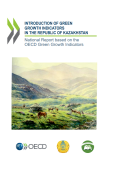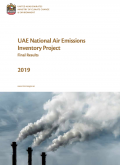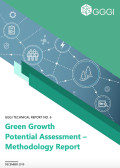This document acts as a technical annex to the Technical Expert's Group on Sustainable Finance's (TEG) final recommendations to the European Commission on the EU Taxonomy of Sustainable Finance.

This report presents the results and conclusions of the project “Introduction of Green Growth Indicators and Preparation of the Report on Green Growth in Kazakhstan”, carried out within the framework of the OECD Kazakhstan Cooperation Program. The main goal of the project is to assist Kazakhstan in integrating the measurement of green growth into the regular reporting and planning system, in implementing the concept for the transition to a green economy, and in assessing progress and achieving green growth at the macro level.

This report presents the results from Phase II of the Air Emissions Inventory Project. It is the first national air pollutant emission inventory carried out for the whole country. The emissions inventory shows that emissions from the stationary energy and transport sectors dominate the emission sources. For particulate matter, the dominant source is industrial processes and product use (IPPU). Although the agriculture and waste sectors have a minor contribution to the country’s overall emissions, their role is more significant in terms of greenhouse gas emissions. However, of particular note are the estimated high non-methane volatile organic compounds (NMVOCs) emissions from municipal solid waste disposal on land.

This report examines both the benefits and risks big data and AI can bring to the insurance industry. In particular, this reports discusses how the OECD Recommendation on Artificial Intelligence and the European Commission’s Independent High-Level Expert Group on Artificial Intelligence’s (HLAG AI) Ethics Guidelines for Trustworthy AI should be considered in the context of the insurance sector.

This report provides a detailed overview of the Green Growth Potential Assessment (GGPA) methodology in its current form and the extensive changes made to it since the first GGPA was conducted in 2015. These changes encompass all three stages of the assessment process: the preliminary assessment, consultation process, and final analysis.
